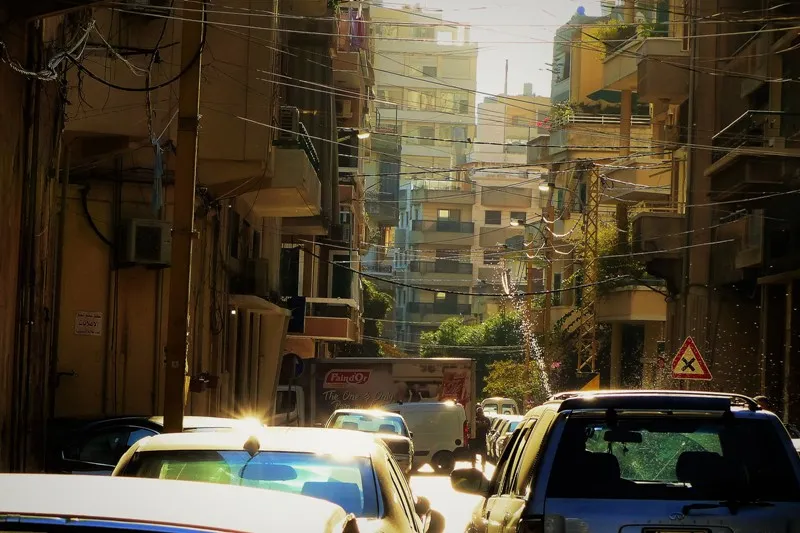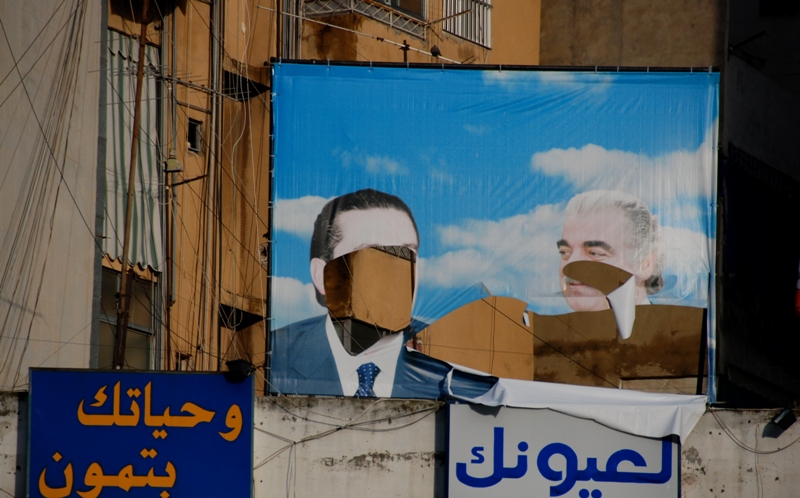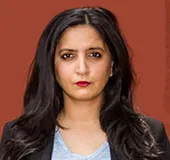-
CENTRES
Progammes & Centres
Location
Lebanon is trying something different, but how far will it succeed?

Image Source: Lucia Czernin — Flickr/CC BY 2.0
Lebanon is plodding to nationwide elections on 6 May. A tiny nation on the Mediterranean, it has been coping with incessant crises over the last four decades. The fifteen⎯year⎯long civil war, Israeli invasions and the prolonged conflict in neighbouring Syria, have stymied Lebanon’s growth both politically and economically.
The last elections held in the country was in 2009, and after much stalling of the vote by the ruling, the Lebanese are casting their ballot.
In Lebanon, entry to the parliament is still reserved on the basis of the winning candidate’s religious sect, which warrants the question: how can the deep⎯rooted problem of sectarianism be resolved? The Iran backed Shia group of Hezbollah and its allies are expected to emerge stronger than the Saudi backed incumbent Hariri. Will this intensify Saudi⎯Iran rivalry and plunge the country (possibly even the region) into another crisis?
In Lebanon, entry to the parliament is still reserved on the basis of the winning candidate’s religious sect, which warrants the question: how can the deep⎯rooted problem of sectarianism be resolved?
Offering hope, members of the ‘civil society’ have entered the election fray. However, an important question is: what constitutes this ‘civil society’? And to what extent can they succeed?
Beyt Beirut or the home of Beirut is jutting out on a cross⎯section — dividing east and west of the city — on the former frontline between warring factions of the civil war. A buff coloured building with gaping bullet holes, it functions as the civil war memorial — often hosting artwork on socially relevant topics. The scars of the war have been preserved to serve as a reminder of the mayhem the country witnessed. The Lebanese say “never again” to such a bloodbath, but understand the shortcomings of the system created to end it.
The Tiaf Agreement of 1989 divided power between Christian and Muslim sects and played a definitive role in ending the Lebanon civil war. Peace descended as former warlords gave up the gun and donned politicians’ attire. They grabbed political power and have stuck to it since.
Over time, instead of bridging the gaps, the arrangement has deepened the sectarian divide. Candidates seeking to govern the nation are elected on the basis of their sect, and work for — if at all — the people of the sect. Elected politicians turned into local mafia lords, ostensibly, protectors of the people of their respective sect. Voters became subjects, dependent for basic help from the state. The process in fact solidified sectarian faultlines.
This year, Lebanon is trying something different.
Under the new law, voters will be presented with several lists to opt for a specific number of seats in each district. Each list will offer candidates different political programmes. From among them, the voters in⎯turn will pick a preferred candidate. A list must therefore score a minimum number of votes, or it gets eliminated. Further, division of seats will happen on the basis of the number of votes different lists obtain; parliamentarians would emerge out of the preferential vote.
This is a shift: from a majoritarian system to proportional representation. The seats are however reserved on confessional basis. Even if a candidate garners preferential votes, seat(s) will still go to the candidate representing the sect that it is reserved for.
Electoral reform process is seemingly full of loopholes, being exploited by established, seasoned politicians.
Adnan Melki, the former secretary general of Lebanon’s association for democratic elections, says: “Enemies across the political spectrum have cobbled up lists together keeping in mind a suitable sectarian math to garner maximum number of votes.”
Electoral reform process is seemingly full of loopholes, being exploited by established, seasoned politicians.
Consider this: Michel Aoun is the current president of Lebanon and a Christian. Saad Hariri is the current prime minister and a Sunni Muslim. Politically, both Aoun and Hariri represent different ideas; in fact, while Aoun is an ally of Iran backed Hezbollah, Hariri is backed by the Saudis which vehemently opposes Hezbollah’s presence. In some of the lists, Aoun’s Free Patriotic party and Hariri’s Future Movement have fielded candidates together, while in others, they are competing. Convenient political alliances have led to an air of despondency among the Lebanese who wonder if the power structure would ever change for the better.
The silver lining to the law, albeit limited, does exist.
According to election experts, the proportional system gives independent candidates a shot at getting inside the parliament.
Gilbert Doumit is foretelling his victory and sending out invitations to celebrate a week before the Lebanese vote. “Who said transforming the country couldn’t be fun?” reads the invitation communicated through social media platforms.
The idea is to reach out to first⎯time voters, mainly the youth, who express apathy towards the election process and its outcome. The youth desire change.
Sipping on local beer, Gilbert convinces men and women to vote for him from Beirut 1 — a district with eight seats, situated in an uptown part of the capital.
Gilbert is fighting for the seat reserved for Maronite, a dominant Christian community in the district. He is however pitching himself as a secular candidate.
“We want to do away this politics of sectarianism,” he told me at a French restaurant.
Gilbert is one of the 66 civil society candidates who have agreed on a common political programme under the umbrella of Killuna Watani, meaning ‘all for one nation.’ The candidates first came together in 2015 as citizen’s groups. They called themselves Beirut Madinati or ‘Beirut is my city’ and even fought in the municipal elections that year. While they did well, they failed to secure a majority and couldn’t get the real power. Now that Lebanon has changed the law, Gilbert feels there is a higher chance for candidates like him to enter the parliament.
The chatter on the streets doesn’t sound very promising.
Bassam Khaweja, an activist with the Human Rights Watch, says: “There just isn’t enough noise about them, far less than in 2015 when they fought for the municipality.”
Bassam is right. Citizens who turned activists and aspired to enter politics, were united two years ago. They are widely divided now. Even though Killuna Watini is the biggest coalition of civil society candidates, it is just one such actor fighting the polls. Several others who were a part of Beirut Madinati, have formed different groups and are fighting as independent candidates.
Citizens who turned activists and aspired to enter politics, were united two years ago. They are widely divided now.
It has been hard for many of them to agree on common ideas. Clashing egos have also made consensus tougher.
Funding is the other factor that may end up ruining prospects. Gilbert and his clique is banking on personal savings and help from friends to fight the polls, while established political parties have several sources to procure funds, including backing from foreign countries.
Days before the polls, most civil society candidates are missing from the hoardings and posters plastered on the walls of Beirut. Their faces are hard to find on television screens.
“A TV channel asked me for thousands of dollars for a little time to present my ideas — we just don’t have that sort of cash,” Gilbert said.
A fragmented front facing scarcity of funds, the civil society candidates may just be a city phenomena. Perhaps they will succeed in making a mark in Beirut, but outside of the glitzy, upper middle⎯class areas of the capital — and despite the change in the law — they may find it hard to win.
Bequeathed into a political career by his father and stalwart Sunni leader, Rafiq Hariri, Lebanon’s Prime Minister Saad Hariri dropped a bomb in November last year when he resigned from his position. The thrust was felt across the region, gripping it in a fear of another war in the Middle East.
 Damaged portrait of Rafic and Saad Hariri; west Beirut, 2007 | Photo: Paul Keller — Flickr/CC BY-NC 2.0
Damaged portrait of Rafic and Saad Hariri; west Beirut, 2007 | Photo: Paul Keller — Flickr/CC BY-NC 2.0
New crown prince of Saudi Arabia, Mohamad bin Salman (MbS), was asserting his will and ‘punishing’ Hariri for going easy on the Hezbollah.
That was much ado about nothing. Days later, Hariri flew back and withdrew his resignation.
Now, he is moving from one district to another campaigning and clicking selfies, despite his party being in dire straits.
The Lebanese blamed Saudi Arabia for Hariri’s resignation while his popularity peaked. He was perceived as a victim amid regional rivalry. For a few months, it was even thought that MbS’ stunt may help him perform better in the elections. But the elections, new law cuts into Hariri’s Sunni vote, and certain influential Sunni candidates are challenging Hariri’s supremacy.
Tripoli, in north Lebanon, is the hub of Sunnis loyal to the Hariris — so much so that the loyalists have painted the walls of their homes in a blue and white — the colours of Hariri’s Future Movement party. A desultory performance of the government, imprisonment of Sunni Islamist leaders and the emergence of a strong contender from the Sunni elite, has shaken the faith of the Sunnis.
The former justice minister of Lebanon, Ashraf Rifi, has been eying the premier’s position for years and has even visited Saudi Arabia to do his bidding. He is keen on capitalising on the Sunni discontent in Tripoli.
Saad Hariri himself is fighting on a list from Beirut II district; but to make life tougher for the scion, 11 lists have come out for nine seats. While he will almost certainly be chosen as a parliamentarian by the people, his party is bound to lose out to Hizbollah backed Sunni candidates, among others, who enjoy comfortable equation with the Hezbollah.
Fouad Makhzoumi is one of the challengers to the Hariri cult. He hails from among the grand, notable Sunni families of the country, and is a business tycoon. Makhzoumi made his wealth out of the oil boom in Saudi Arabia. He has ‘donated’ £1 million to conservative parties in the UK and $50,000 to French presidential hopeful François Fillon, ostensibly to arrange a meeting with Russian president Vladimir Putin. Needless to say, he is in good grace of the mighty in Riyadh and paradoxically enjoys a decent relationship with the Hezbollah too.
An Iranian proxy with political and militia wings, the Hezbollah is massively supported by the Shias in the country who are itching to get, what they call, a fair share of the power. Hariri’s loss and a split in the Sunni vote will be Hezbollah’s gain.
An Iranian proxy with political and militia wings, the Hezbollah is massively supported by the Shias in the country who are itching to get, what they call, a fair share of the power.
During the years of civil war, the Shias were extremely poor. The sectarian war, then, wasn’t between them and the Sunnis. And the peace brought in by Tiaf Agreement gave very less opportunity. The presidency went to the Christians, premiership to the Sunnis and the Shias got to have a speaker. The Israeli attack on Lebanon, in the Shia dominated south in 1982, post the 1979 Islamic Revolution in Iran, gave birth to the ‘Party of the God’ — the Hezbollah of Iran. Containing the Israeli threat over the years glorified the group’s image in the country and made it a necessary evil, especially since the Lebanese largely believe that the Lebanese army wasn’t strong enough to take on Israel. For the Shias, the Hezbollah became a tool of empowerment.
Mobilising electoral support for candidates and the allies, Hassan Nasrallah — General Secretary of the Hezbollah — didn’t shy away from seeking votes. Nasrallah reminded the Shias to be loyal to the cause and the party.
The rumour swirling in foreign policy circles is that the Hezbollah may have cracked a better sectarian calculation than Hariri and is likely to emerge as a stronger alliance. In which case, over the next year or so they will demand to be higher⎯up in the political hierarchy. The Hezbollah's rise as a political party will be unacceptable to the Saudis. It is not clear yet how they will react, but war with Iran and the Hezbollah isn’t unlikely.
The views expressed above belong to the author(s). ORF research and analyses now available on Telegram! Click here to access our curated content — blogs, longforms and interviews.

Anchal Vohra was a Fellow at ORF. She writes on contemporary developments in West Asia and on foreign policy.
Read More +